Hello dear readers we are back with our purple lines. On this occasion I would like to bring up several concerns expressed by my colleagues on the blogs that precede these letters, especially I bring up the dialogues held with my dear friend Andrés who asked me if feminism is only a matter for women, and if not, how can men contribute to achieve a life of equality? How to uproot the macho background that permeates the behaviors in society? how to enhance gender equality from the perspective of masculinities?
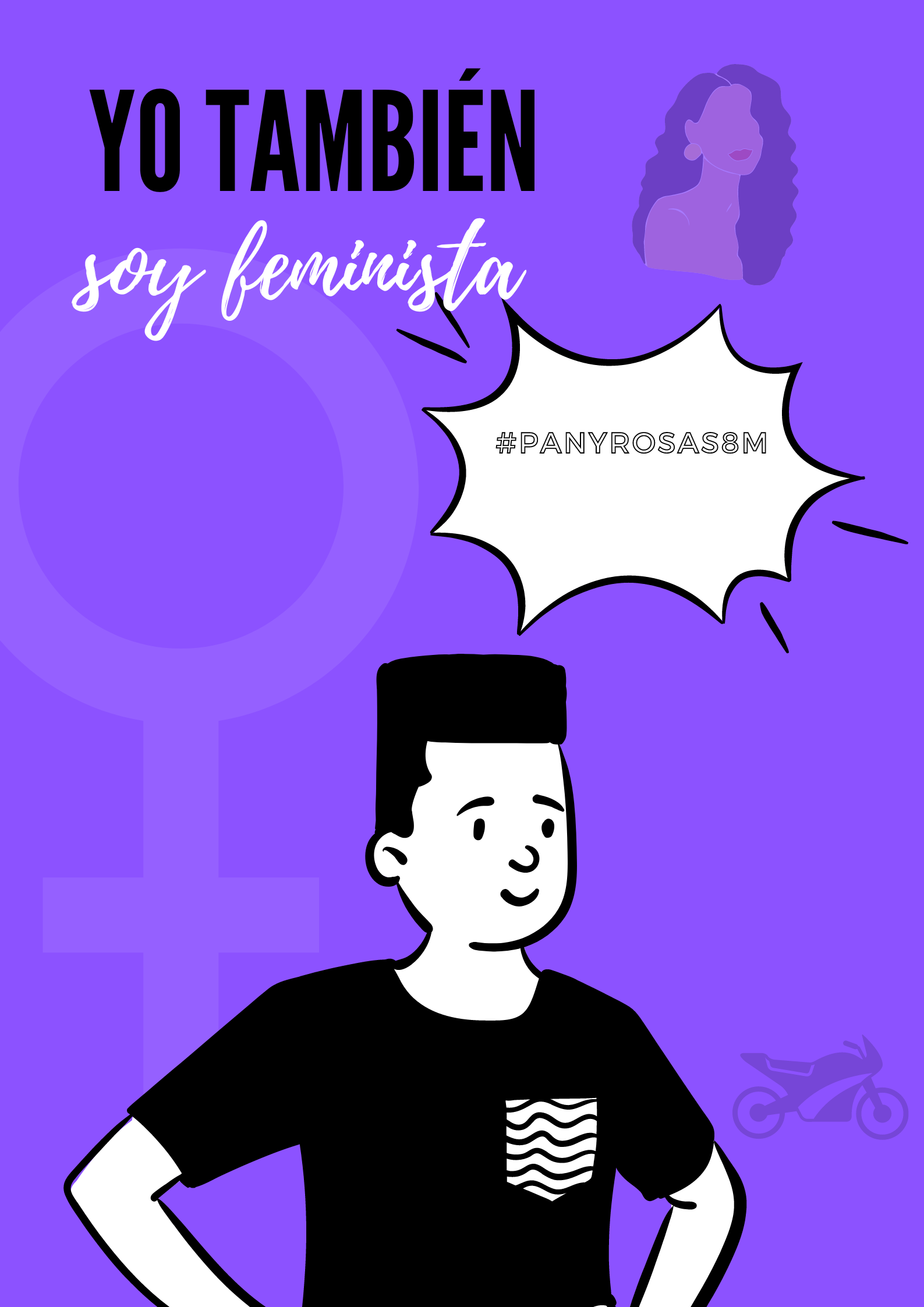
In this regard, I must say that conversations with my peers, regardless of the gender with which they identify and/or express themselves, have always given me the stimulus to trace routes of accompaniment for social development, which is why I have not hesitated to write down the results of such conversations.
So then, as those who read me already know … I like to put readers in context (history being my ally), especially in this crucial matter, since we must express that, although women have been the main protagonists in our struggle, we cannot ignore the fact that there were and still are men who took positive actions to achieve gender equality.
In this Blog, I would like to present François Poullain de la Barre and John Stuart Mill, two rational men who, from the exercise of their knowledge, proclaimed the transgressive overcoming of superiority attributed to men, undermining the rights of women by believing them to be inferior beings.
Precisely, in this inadequate appreciation during the Renaissance period, the confrontation of two positions had its genesis, the first that maintained that women were inferior and its correlate related to the fact that being born women we could not develop the virtues that emanated from the interaction of excellence that produces rational exchange, it was not possible to reconcile which of these predominated over the other, what was certain was that as women we were subjected to the empire of men, due to the presumed superiority of the biological sex.
It is precisely in this dispute that our first masculine reference Poullain de la Barre enters the panorama. This philosopher, who being a priest at only 26 years old, published in 1671 a controversial and innovative text called ¨The Equality of the Sexes¨ anticipating the main ideas of the Enlightenment, in which he criticizes especially the entrenched prejudices and advocates access to knowledge for women as a remedy to inequality and as part of the path towards progress and which responds to the interests of truth (Sanchez, 2001 p. 18).
After this first book, Poullain de la Barre published two others that are considered the continuation of the main requirement in the Society of the time, circumscribed to education, entitled: ¨The education of ladies for the conduct of the spirit in science and manners¨ and ¨The excellence of men against the equality of the sexes¨.
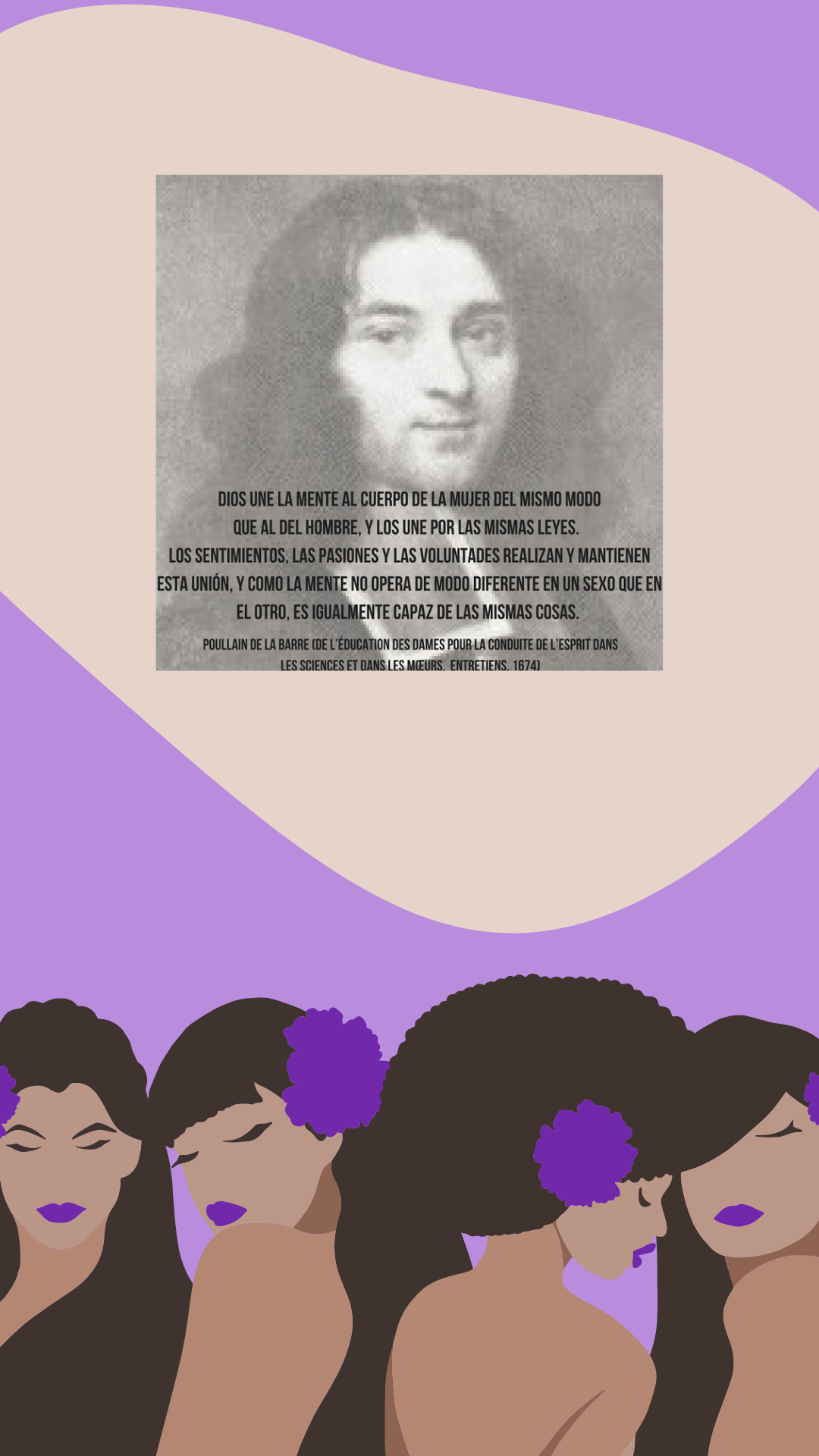
Varela (2019) shares with us that the intention of the philosopher in his first text was to show how sexual inequality can be combated through education, and in the second he wanted to rationally dismantle the arguments of the supporters of women’s inferiority (p. 32).
De la Barre is also famous for the phrase he expounded from the pulpit and later through his letters when he vehemently repeated <<THE MIND HAS NO SEX>>, with which, according to Varela (2019), he inaugurated one of the main demands of feminism in both its first and second waves: THE RIGHT TO EDUCATION.
On the other hand, Varela (2019) also points out that De la Barre is not only one of the founders of sociology, but also defended something even more modern, an idea alike to that which centuries later would be developed as <<positive discrimination>> (p. 33).
Next, we invite you to review the following bio infographic of this philosopher.
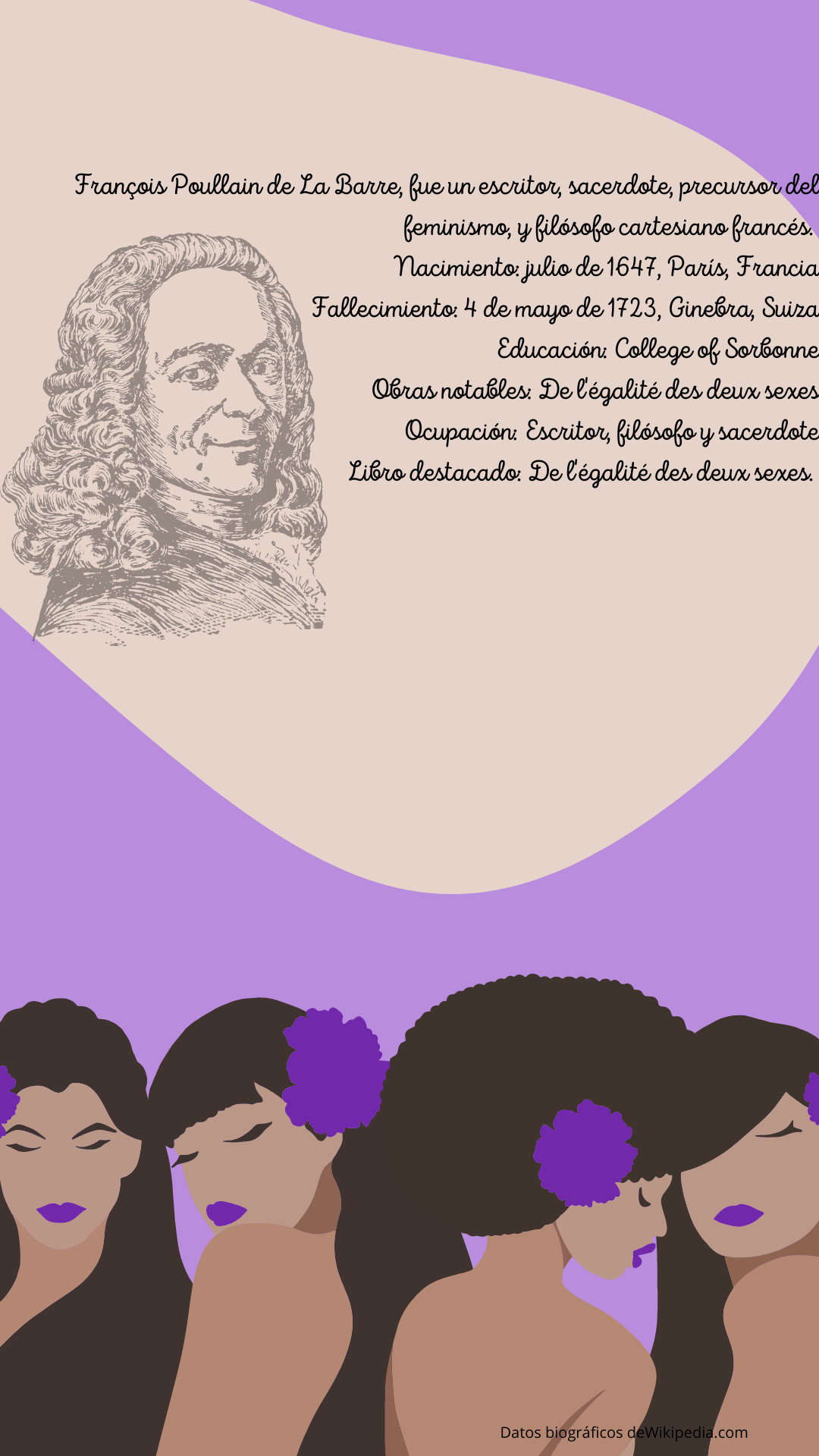
The other thinker I wish to introduce you to is John Stuart Mill, who is recognized as one of the great philosophers of the 19th century, he is the supreme representative and founder of liberalism, in the words of Emilia Pardo Bazán; Mill produced or expanded the political vocabulary and was the one who shaped the reasoning that presides over the societies we inhabit, in this state of affairs, feminist liberalism belongs almost entirely to him.
However, this last line should be clarified, since these ideas were due to the epistolary relationship that he initially maintained with Harriet Taylor, an English feminist who advocated for the autonomy, equality and freedom of women.
Varela (2019) argues that feminism respects John Stuart Mill especially for his book ¨The Subjection of Women¨ or as it is known in other translations ¨Female Slavery¨ published in 1869 and also for his political work as an MP in the House of Commons (the English parliament). Mill did not succeed in any of his initiatives, he had to endure the derision of his fellow MPs and it was even written with irony in the Times newspaper that Mill was trying to bring about <<a great social reform>> by changing a simple word when he sought to change <<man>> to <<person>> in the electoral reform under discussion at the time. However, it was significant for the suffragettes of the time that this issue reached public opinion (p. 65).
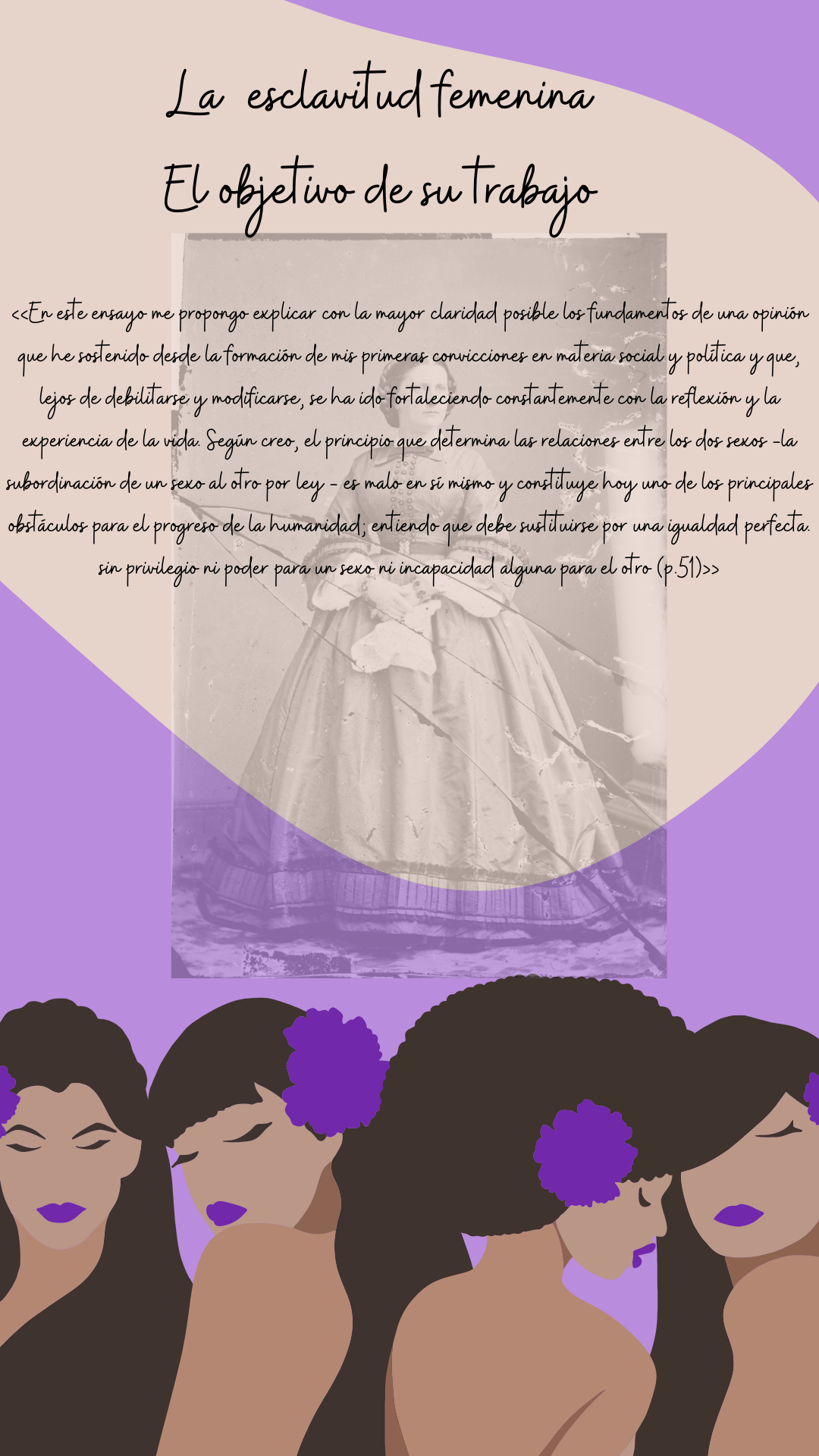
Varela (2019) states that the impact of the essay written by Mill in association with Harriet Taylor and her daughter Helen Taylor dazzled the women of the time, so much so that Elizabeth Cady Stanton, leader of the American suffragettes, wrote to him after reading The Subjection of Women as follows:
«I finished the book with a peace and joy I had never felt before. It is, indeed, the first response of a man who shows himself capable of seeing and feeling all the subtle shades and degrees of the wrongs done to women, and the core of their weakness and degradation» (p. 65).
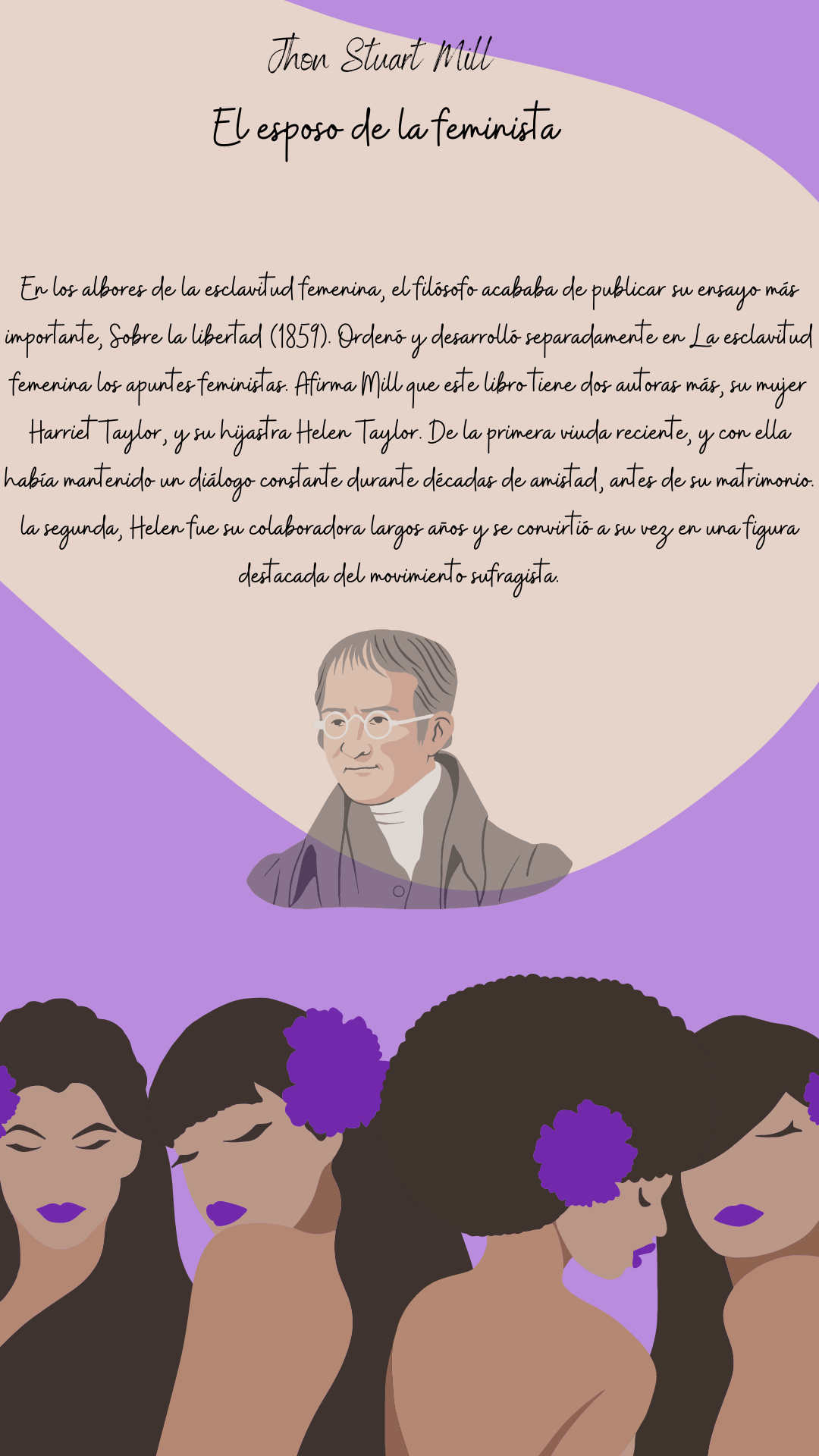
Having finished the contextualization and in order not to visually exhaust the readers, I will now answer Andrés’ questions in the following infographic:
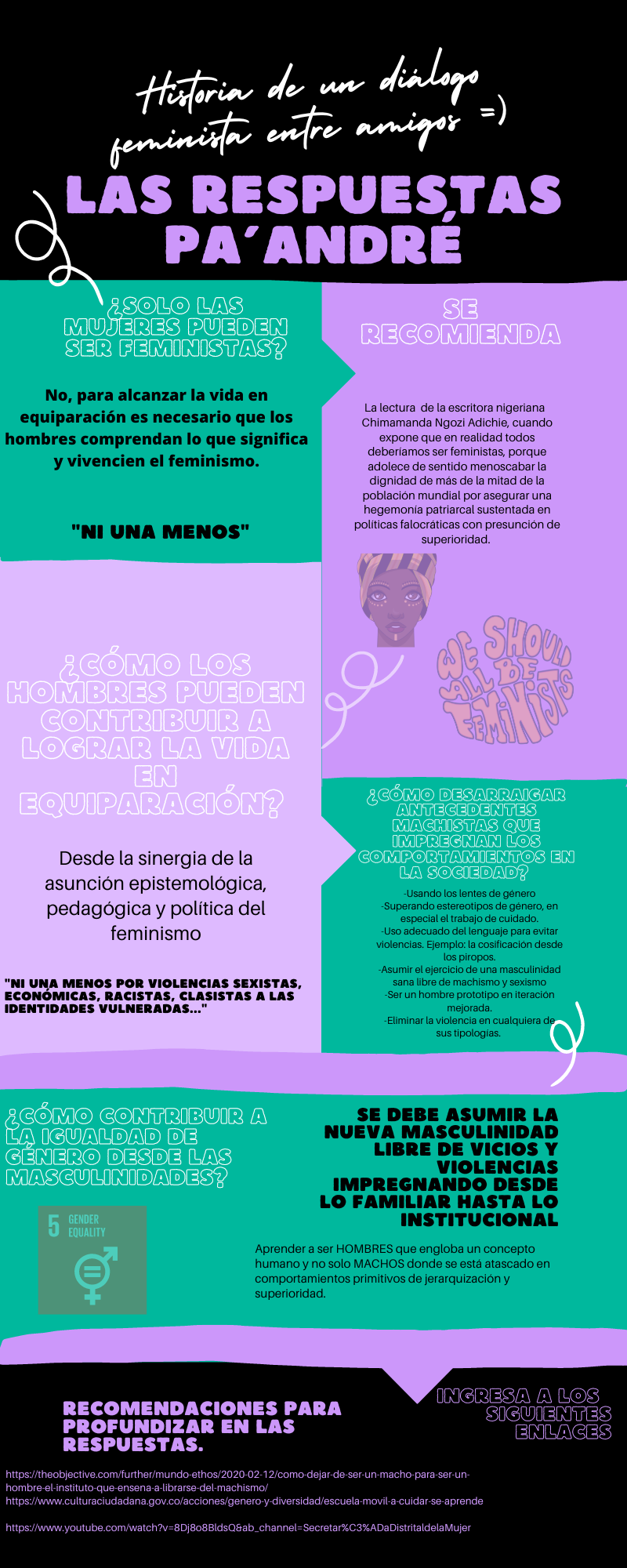
So much for our purple lines in this issue, I write them in the hope that we will have more men like my friend Andrés, who are interested in being part of the joint development of humanity.
As always, thank you for reading me… may the purple lines pave our way 🙂
References
Adichie, C. (2012) Todos deberíamos ser feministas. Literatura Random House.
Adichie, C. (2017) Querida Ijeawele cómo educar en el feminismo. Literatura Random House.
Mill, J.S. (2022) La esclavitud femenina. Penguin clásicos.
Sánchez, C. (2001) Genealogía de la vindicación, feminismos debates teóricos contemporáneos, alianza editorial.
Varela, N. (2019) Feminismo para principiantes. Penguin Random House.
https://www.culturaciudadana.gov.co/acciones/genero-y-diversidad/escuela-movil-a-cuidar-se-aprende
https://www.youtube.com/watch?v=8Dj8o8BldsQ&ab_channel=Secretar%C3%ADaDistritaldelaMujer
https://www.youtube.com/watch?v=2nJsPL5IDEQ&ab_channel=Alcald%C3%ADadeBogot%C3%A1
T0 dieron "Me gusta"Publicado en Antropología y Género, Derecho, Derechos Humanos, Educación, Género, Humanidades, Papers



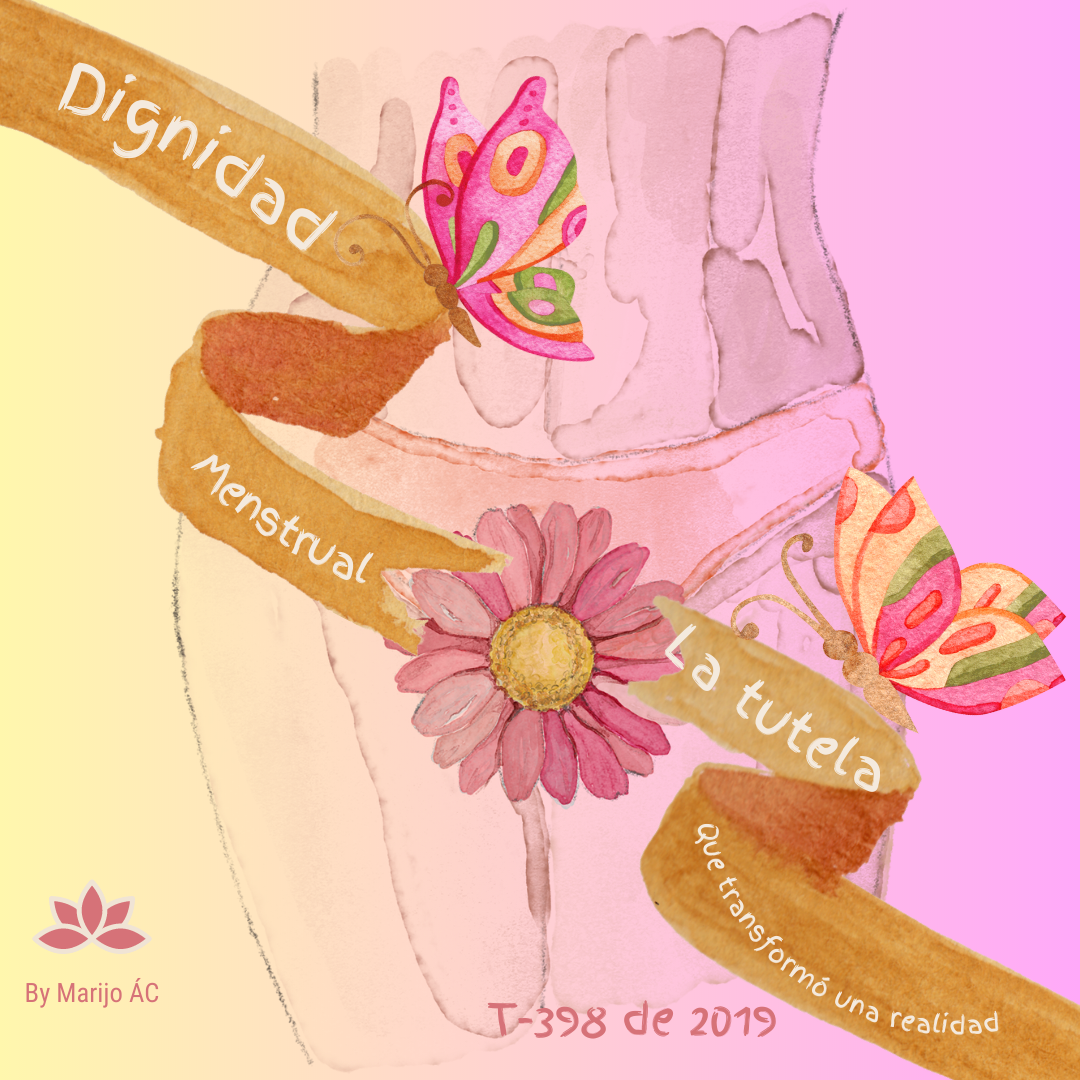
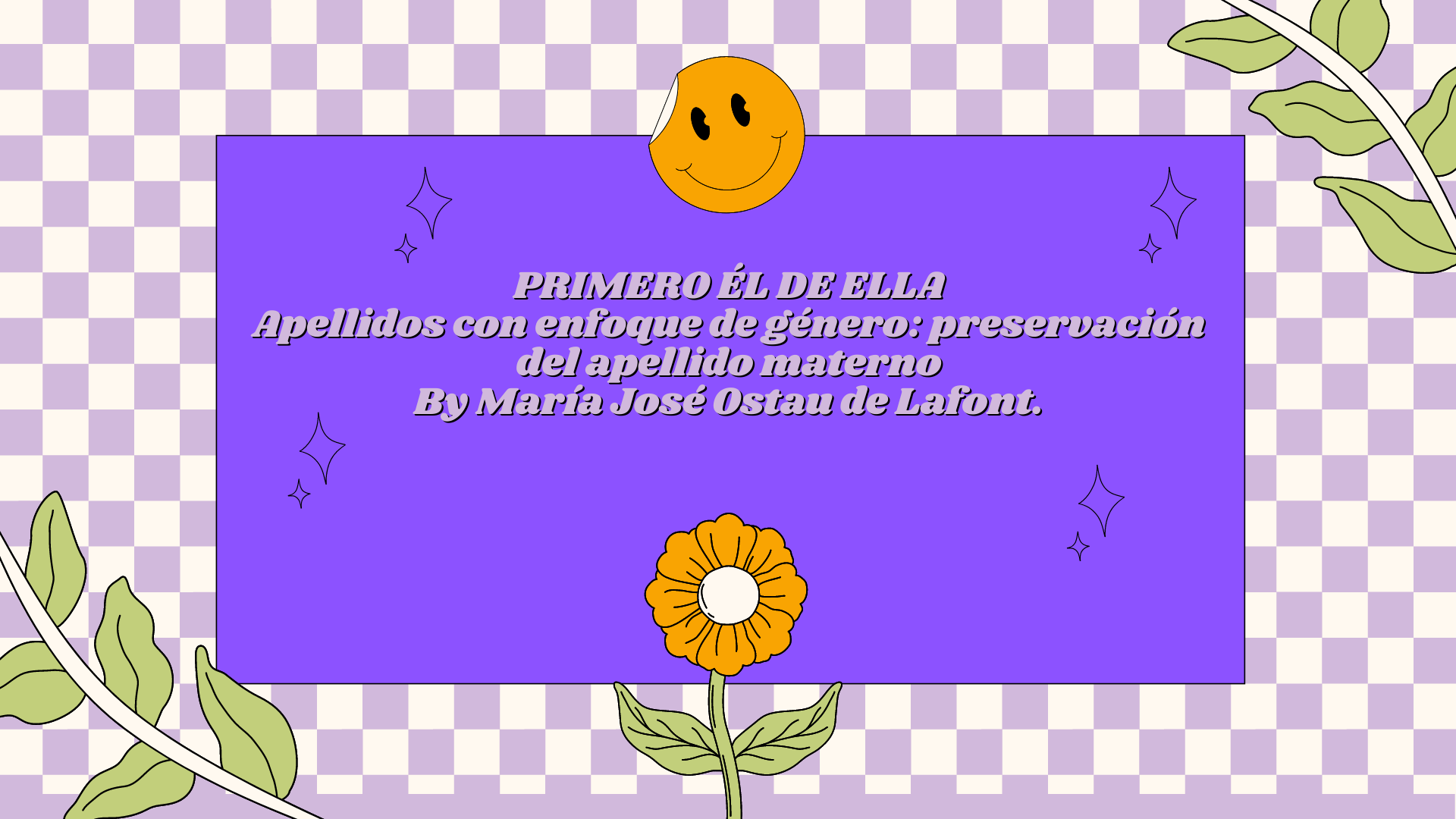
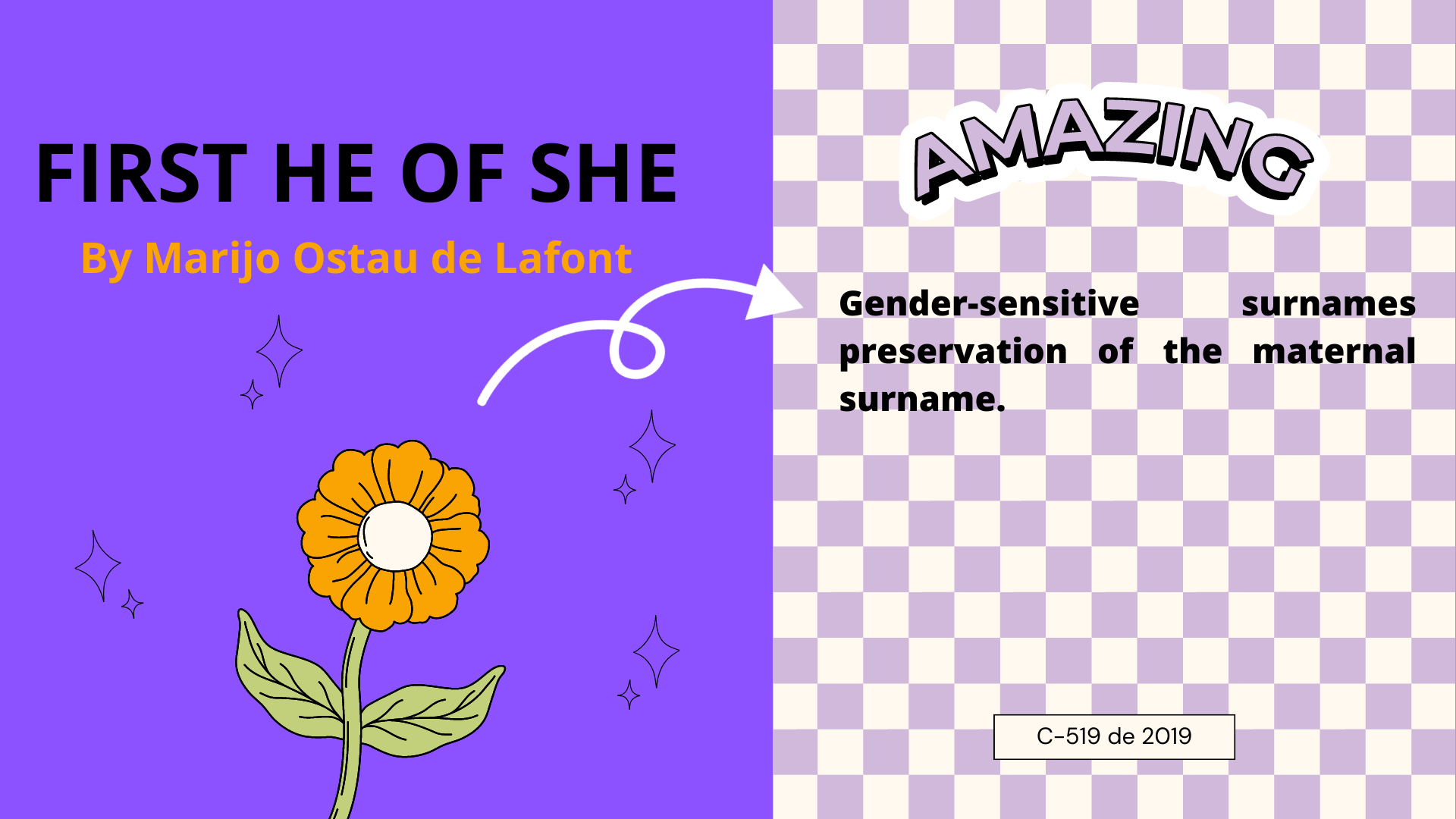

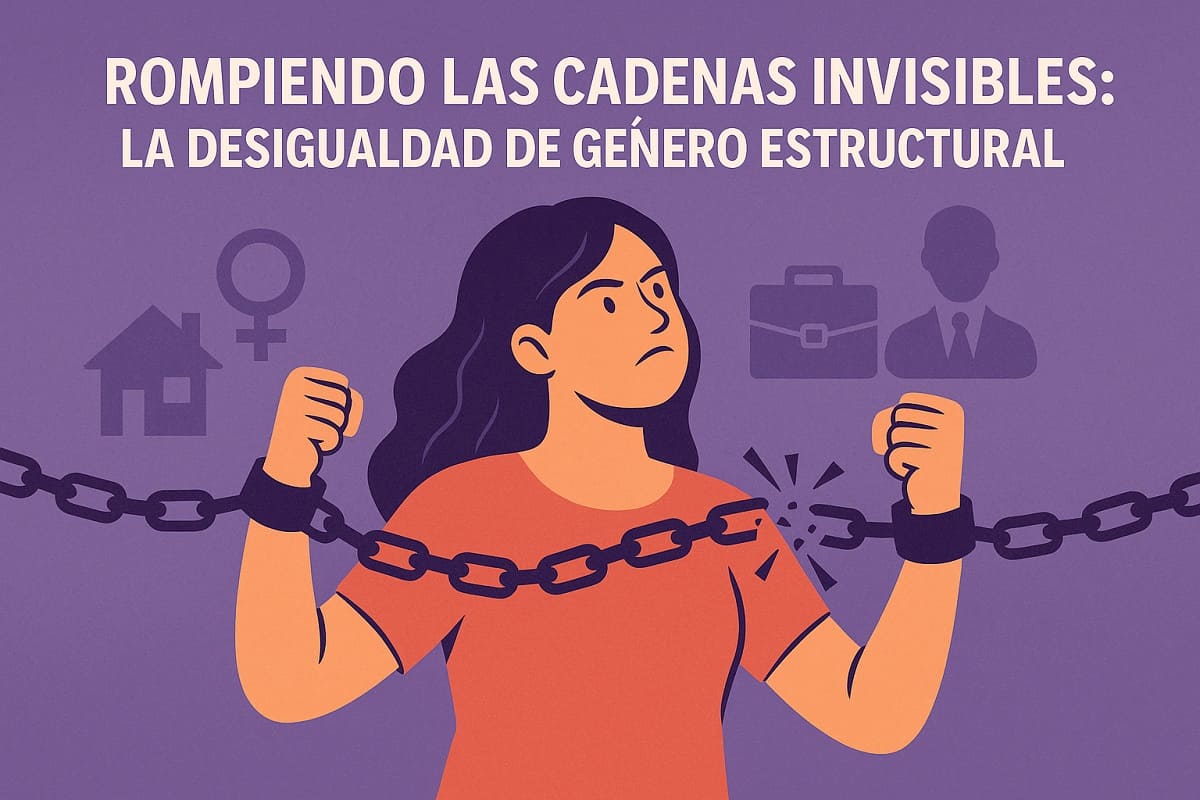

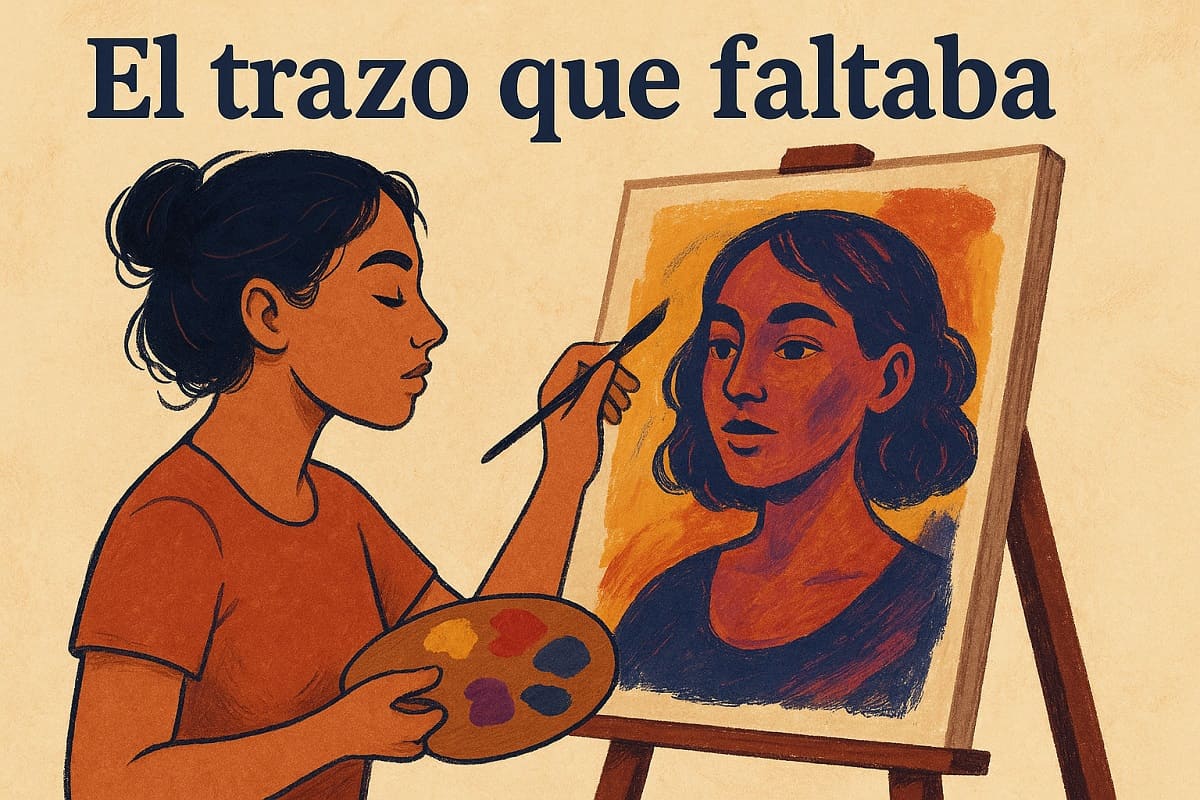



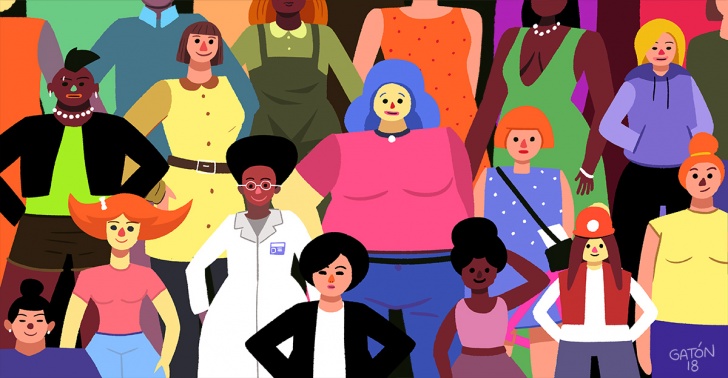









Comentarios